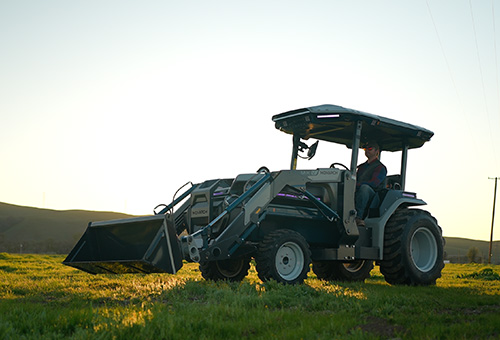As modern farming evolves, technology plays an increasingly important role in shaping the future of agriculture. Welcome to the world of smart farming — a fusion of technology, intelligence, and agriculture transforming how farmers cultivate the land.
Smart farming is part of a wave of innovation sweeping across U.S. farms, from the vast wheat fields of the Midwest to the West Coast vineyards to the blueberry fields of Florida. This transformative approach to farming holds the promise for numerous benefits that include everything from lower operational costs and increased yields to more efficient reporting to enhanced labor and sustainability.
While the benefits are numerous, there are also a few challenges associated with smart farming as well as new technologies to watch out for in this dynamic growing field. Let’s dive in!
What Are the Smart Farming
Technologies?
While some might assume smart farming solely refers to an intellectual practice, it’s evolved into a tech phrase that encapsulates the growing trend of incorporating advanced, connected devices on the farm. Smart farming, an advanced form of AgTech, refers to a farming management concept that integrates modern data collection and communication technology.
If you’re using a smart phone or tablet, you’re already using smart technology in your daily life. When your doorbell sends you a package delivery alert or you use an app to control your home’s thermostat from another location, even tracking your workouts with an app — this is smart technology at work using a concept called the Internet of Things (IoT). Smart farming takes this same concept and applies it to agribusiness.
When devices can communicate with each other and share critical information about crops, machinery, and operations farmers can make more informed decisions to increase the quantity and quality of their agricultural products. Smart farming also plays a key role in precision agriculture, making it easier for a farmer to retrieve and interpret the collected data.
Even small and mid-sized farms — those managing cows, berries, vineyards, or orchards — are likely already dabbling in some form of smart farming. This could range from simple weather station apps to more advanced tools incorporating sensors, robotics, autonomy, and GPS technology. Examples abound. GPS enabled collars on cows allows ranchers to track their herds on pastures. Microclimate weather stations can inform orchard farmers on humidity levels and upcoming risk of freeze. One innovative development in the realm of smart farming is Monarch Tractor’s MK-V. This tractor combines elements of smart farming, autonomy, electrification, and data collection into a user-friendly system that is part of the tractor itself. 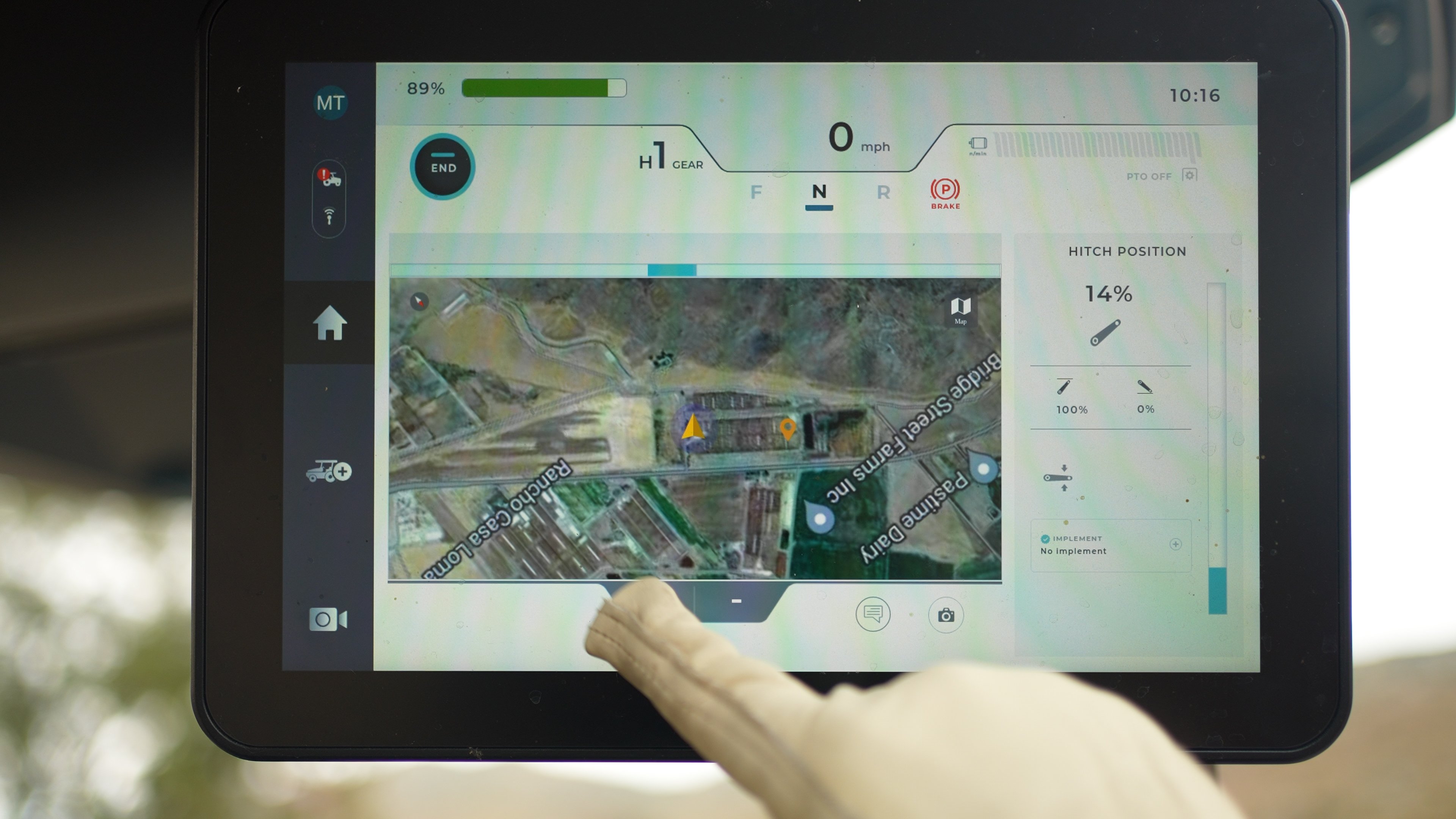 The MK-V automatically generates easy-to-read reports, reducing the need for farmers to interpret complex data. Its Wingspan Ag Intelligence (WingspanAI) platform gives farmers, operators, and maintenance managers access to data and reports through an app that runs on their phone, tablet, or computer. The tractor’s smart screen information is also available in Spanish, making this smart farming solution easily accessible to a broader range of users.
The MK-V automatically generates easy-to-read reports, reducing the need for farmers to interpret complex data. Its Wingspan Ag Intelligence (WingspanAI) platform gives farmers, operators, and maintenance managers access to data and reports through an app that runs on their phone, tablet, or computer. The tractor’s smart screen information is also available in Spanish, making this smart farming solution easily accessible to a broader range of users.
What Are the Benefits of the Shift to Smart Farming?
The transition to smart farming brings many benefits for the farm, the environment, and ultimately, the consumers who rely on our agricultural system.
Lowered Operational Costs
Implementing smart farming technologies, like the MK-V, can lead to significant cost savings for a farmer. This type of machinery streamlines operations like mowing, enhancing efficiency across operations and tractor maintenance. In the case of the MK-V electric tractor, which stacks connectivity, electrification, and autonomy, additional operational costs are realized with fuel savings and the ability to replace herbicide use with driver-optional mowing. Operators can also monitor multiple tractors at once for efficiency and savings in labor.
Increased Yields
By leveraging the power of AI and IoT, farmers can make informed decisions based on real-time data, enabling them to optimize processes and safeguard crop health, which can help increase yields. Furthermore, technologies such as Monarch’s WingspanAI can provide information on key metrics that can help farmers make informed decisions on crop care, labor, tractor maintenance and deployment, among others.
Improves Accuracy and Financial Forecasting
Smart farming technologies can collect and analyze a vast amount of data, providing farmers with valuable insights about their operations. Real-time updates on farming operations, mapping, visual records, and crop insights allow farmers to better manage their daily, weekly, monthly, and annual schedules and budgets. This enhanced data accuracy leads to better financial forecasting, helping farmers make more informed business decisions. The MK-V has integrated many of these capabilities into the tractor, for elevated, streamlined access to valuable and useful farm intelligence. For instance, farmers can pull personalized reports on fuel savings, emissions reductions, autonomy usage, and more for insights at the operational and temporal levels. 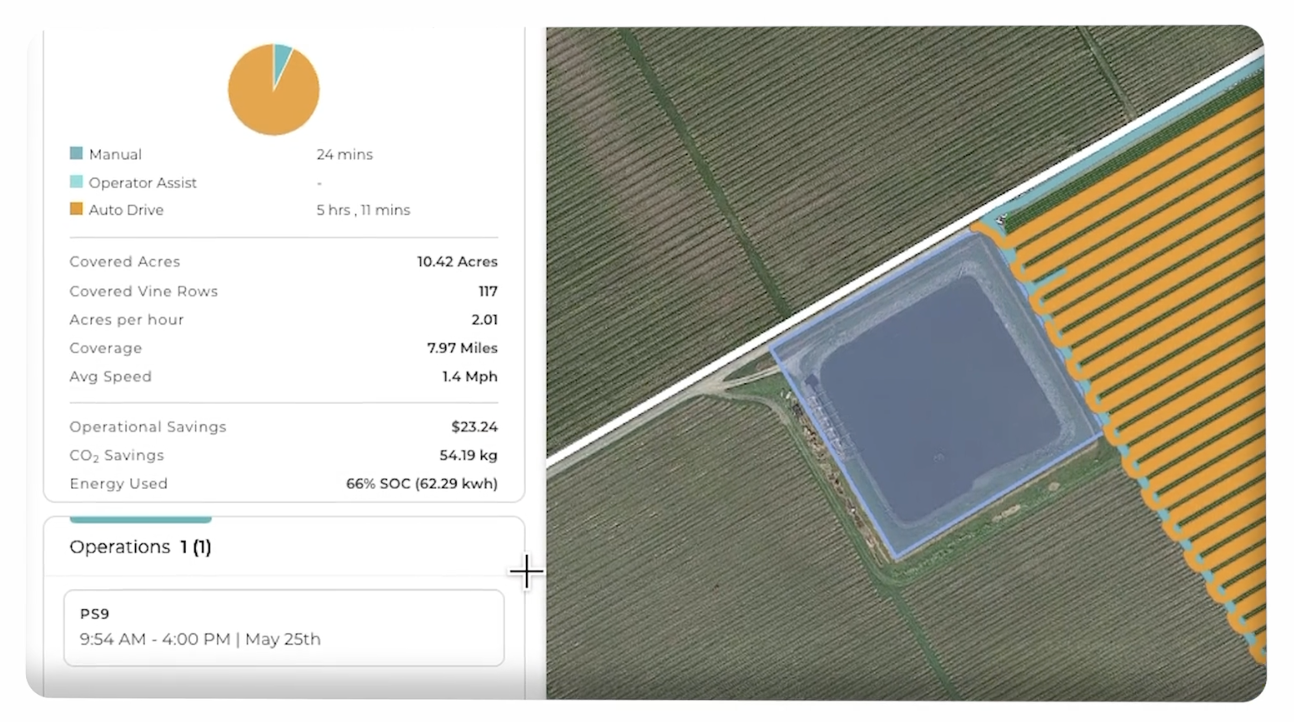
Sustainability
With consumers becoming increasingly concerned about sustainability and agribusiness retailers responding to the collective desire for greater transparency, adopting strategic smart farming technologies allows farmers to meet these demands without compromising profitability. These technologies promote the efficient use of resources and contribute to reduced carbon emissions supporting a more sustainable agricultural model. Increasingly, sustainable agriculture practices are proving to be strong business model for the long-term.
More Efficient Reporting
Farm reporting is a hassle and expensive. Smart farming technologies automate many reporting tasks, eliminating the need for manual data collection and analysis. This saves time and minimizes human error, leading to more accurate, reliable reporting, especially when data collection and report generation is integrated into the tractor, such as with Monarch’s WingspanAI technology.
What Are Common Concerns Around Smart Farming Technologies?
Despite some compelling benefits, farmers may have certain concerns when it comes to transitioning to or integrating smart farming technology.
Some potential concerns include:
- Technical expertise: Learning to operate certain advanced features of new technologies may feel initially daunting. The availability of robust tech support and training resources is crucial. It’s common for new technologies to come with some initial adjustments and a responsive, farmer-first service team that prioritizes a farmer’s needs above all else is critical.
- Affordability of smart farming technologies: While smart farming technologies can offer long-term cost savings, the initial investment required can be significant. This can be a barrier, particularly for smaller farms with tighter budgets. Farmers can take advantage of financial incentives, tax credits, rebates, and payment vouchers. These incentives typically support electrification efforts, but farmers can gain smart farming benefits if they choose an electric tractor that is also connected. California’s Off-Road Equipment (CORE) program is especially generous. The U.S. Department of Energy keeps an updated list of all the states and their incentive programs related to alternative fuels and advanced vehicles, some of which include certain smart farm equipment, like Monarch’s MK-V.
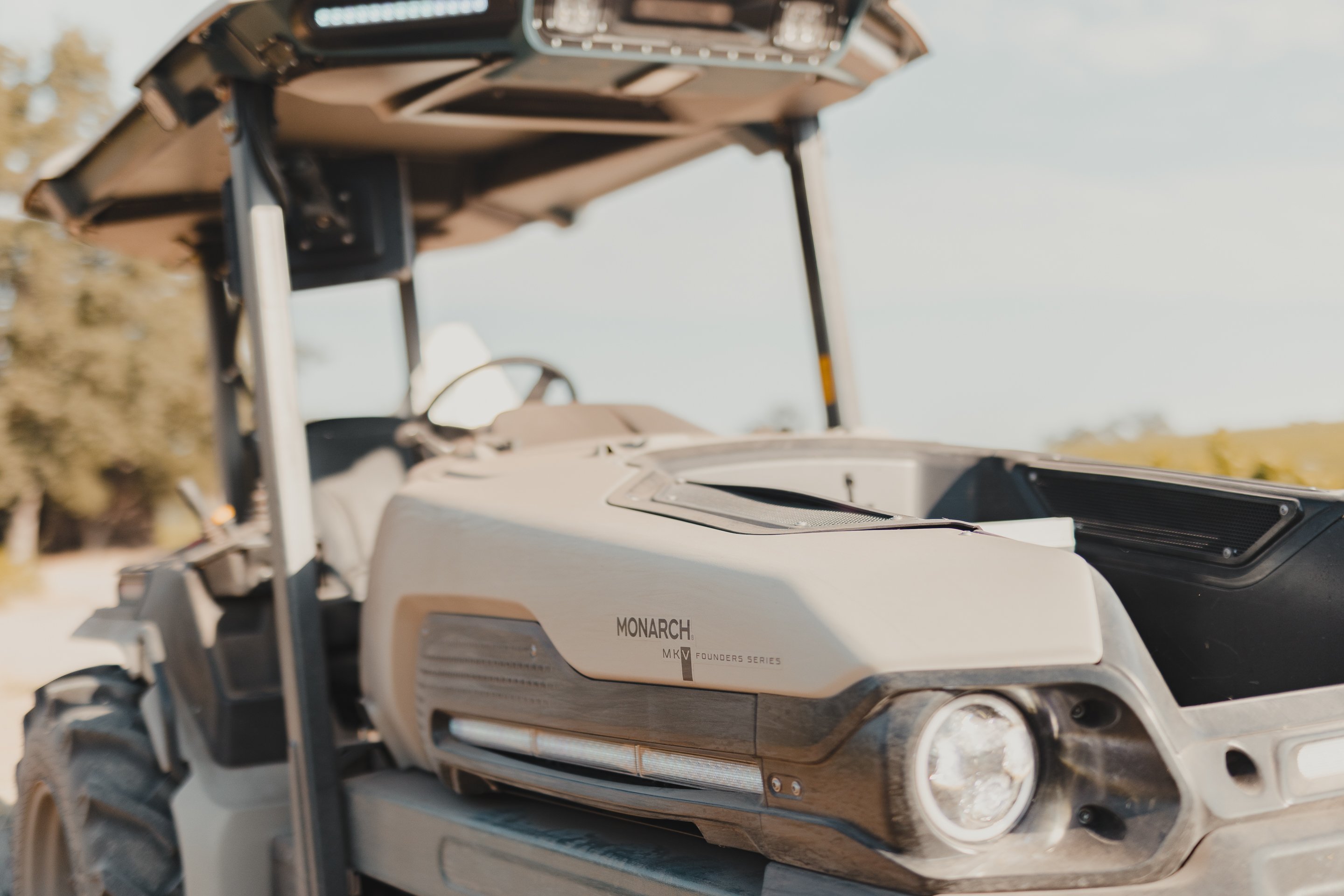
- Integration of new technologies: Depending on the equipment, integrating new technologies into existing farming systems and operations can be complex and time-consuming. Compatibility issues with existing systems can also present a hurdle. To maximize investment and ROI, it’s important to do research and look for equipment that can be immediately integrated with your current farm ecosystem and will also work with future implements and developments.
- Concerns about data privacy and security: As with any technology that relies on data collection and transmission, there are valid concerns about data privacy and security. It's essential for tech providers to assure farmers of their data’s safety and to comply with all relevant privacy laws and standards. If in doubt, ask the manufacturer or dealer.
Farmers operate with slim margins and have little room for error. While new technologies can help them move towards profitability and establish a farm that’s healthier and easier to manage, adopting new AgTech can feel like a risk. Working with partners who can provide accessible and empowering technologies backed with trustworthy service support can alleviate the risk and make the transition to the future of farming feel accessible and plausible.
What Modern Innovations Are Taking Farming to New Levels?
As technology continues to evolve, many advancements come to light that help take farming practices to the next level.
Some of these modern innovations include:
- Livestock tech: Technologies like livestock tracking and health monitoring are revolutionizing animal husbandry. Sensors can monitor an animal's health, location, and behavior in real time, allowing farmers to provide personalized care and optimize herd management.
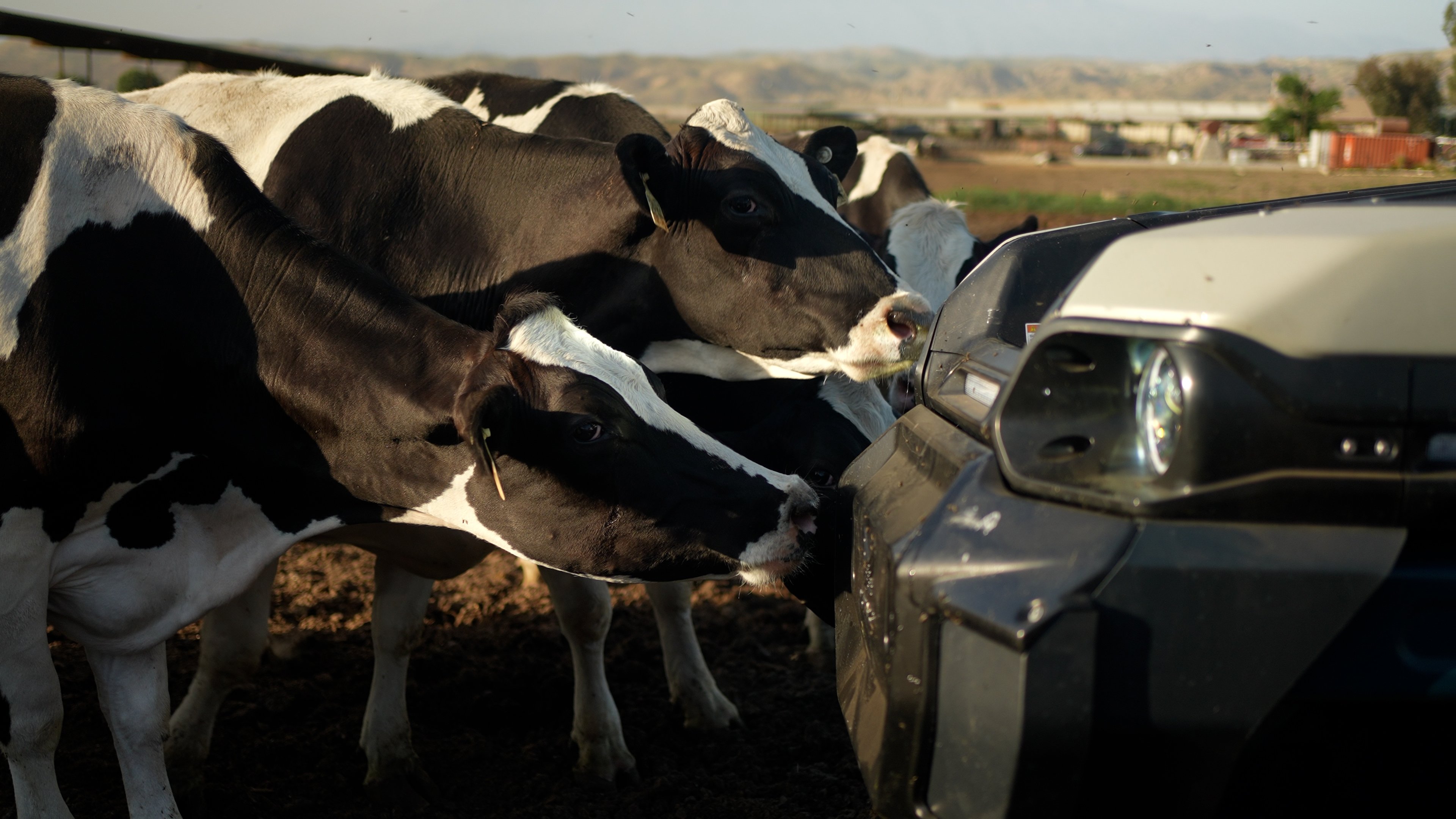
- Innovative greenhouses: Advanced greenhouse technologies, such as dye-sensitized solar cells (DSSC) for the glass cover of the greenhouse, are increasing efficiency in controlled-environment agriculture. Automation and AI-driven systems help manage variables such as temperature, humidity, and light, maximizing productivity while minimizing resource use.
- Transportation and logistics: Even a small farm covers a lot of acreage and keeping tabs on who is doing what and where has been a perennial challenge. GPS technology and automation transform farm logistics, from precision planting to autonomous harvesters.
- Farm automation: Various forms of farm automation have existed for decades. Robotic dairy milking systems, for instance. Yet bringing automation to a moving vehicle such as a tractor was something else entirely. A fully automated, electric, and smart tractor epitomizes the shift toward comprehensive farm automation. In bridging current farm practices with the future, Monarch’s MK-V can be driven manually by an operator or used autonomously.
These are just a few of the exciting advancements smart farming technology is bringing to farms. Every year there are new innovations helping support farmers in their important work to feed the world.
Integrating Smart Farming Into Your Farm
Smart farming is more than a buzzword — it's a paradigm shift shaping agriculture's future. Despite the challenges of adopting these technologies, the benefits — lower operational costs, increased yields, improved accuracy, elevated labor, enhanced sustainability, and more efficient reporting — offer a compelling case for the transition.
The future of agriculture lies in the successful integration of technology with traditional farming methods. By merging accessibility, advanced technology, and affordability, Monarch Tractor is effectively bridging the gap in the smart farming market, helping small and mid-sized farms transition seamlessly into the world of high-tech agriculture. The balance is delicate, but with careful execution and a focus on accessibility and collaboration, the potential benefits are tremendous — for farmers, consumers, and the planet.
References
United States Department of Agriculture. “Sustainable Agriculture.” https://www.nifa.usda.gov/topics/sustainable-agriculture
Koukounaras, A. (March, 2021). “Advanced Greenhouse Horticulture: New Technologies and Cultivation Practices.” https://www.mdpi.com/books/book/3525
Global Positioning System. “GPS: The Global Positioning System.” https://www.gps.gov/




